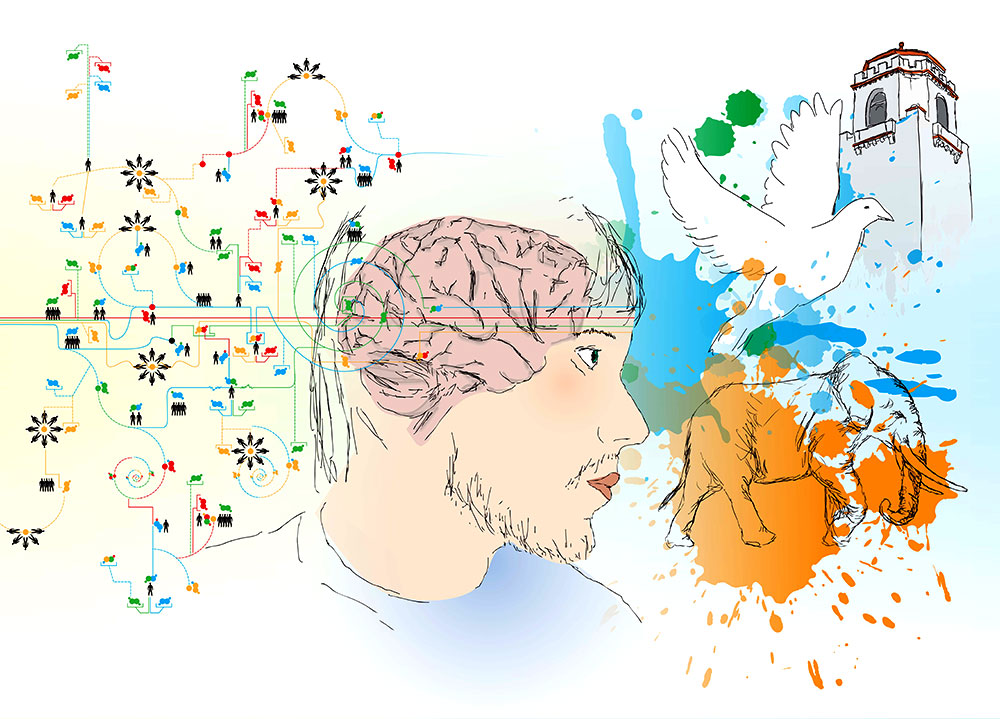Perfection & Why You Will Never Attain It
Do you have days where you just don’t feel like you are ‘good enough’? It doesn’t matter what it pertains to—maybe you missed a typo on a critical report, or didn’t quite make a deadline, or forgot to refill the water in the coffeepot. Big or small, these things tend to weigh us down.
If you are trying to achieve perfection, you will always be unhappy because no one can be perfect a hundred percent of the time. But that’s a good thing.
It’s Hard When We Are Blasted With Perfection All The Time
If you watch TV or use any kind of social media, you probably see perfect faces all the time. But these men and women are graced with more than good looks and DNA, they have technology to make them look flawless. No one can compete with the smooth, unblemished perfection of photo manipulation. Perfect looks, perfect work performance, perfect home life. These things don’t exist for real people.
Moderate perfectionism is typically associated with success, but when it becomes elevated, it delves into the realm of psychiatric disorders. Perfectionists are at higher risk of eating disorders, depression, and anxiety disorders.
Perfectionism has even been associated with early death. There is hope, however, as researchers have shown that cognitive behaviour therapy can lead to a decrease in perfectionism and the associated symptoms (Kothari, 2016).
But I’m Not That Bad, It’s Just Some Things
You may scoff and protest that you aren’t THAT bad. Just because every paperclip is lined up neatly doesn’t mean you are a perfectionist, right? While it can manifest in many ways, the perfectionist mentally can slowly creep up on you. It may start with a perfect row of paperclips and snowball from there, leaving you at risk for eating disorders, anxiety, and premature death.
We Cannot Ever Achieve The Perfection We Seek
It’s part of what makes us human. The flaws and imperfections make us each unique, and beautiful. You have so much to offer, and it won’t matter in a year if your hair wasn’t perfect or if the font wasn’t just right.
Have no fear of perfection—you’ll never reach it.”
Salvador Dali
While most people aren’t full-blown perfectionists, it’s hard to find someone that doesn’t seek perfection for some aspect of their lives. You have to confront these behaviours.
Yes, it’s important to do a good job and to try your best, but you have to be realistic. Retrain your brain to focus on the positive, and stop nit-picking and looking for things that aren’t exactly how you want them to be.
The  can assist you in developing the right attitude, which gives and encourage you to create new neuronal connections that can build on your capacity to create and innovate.
can assist you in developing the right attitude, which gives and encourage you to create new neuronal connections that can build on your capacity to create and innovate.
Learn to recognise the difference between wanting to improve yourself and striving for perfection. You’ll be a lot happier and maybe even live a little longer.
Citations
Kothari, R., Egan, S., Wade, T., Andersson, G., & Shafran, R. (2016). Overcoming Perfectionism: Protocol of a Randomized Controlled Trial of an Internet-Based Guided Self-Help Cognitive Behavioral Therapy Intervention. JMIR Research Protocols, 5(4), e215. http://doi.org/10.2196/resprot.637
- i4 Neuroleader (353)
- Leadership & Culture (325)
- Brain Health & Wellbeing (202)
- Innovation (97)
- Performance (85)
- Our News (80)
- Collaboration (68)
- Agility (53)
- Practitioner Stories (44)
- In The Press (36)
- Make Me A Leader (33)
- Balance (31)
- Integration (30)
- Imagination (29)
- Awareness (23)
- Brain-Friendly Channel (22)
- Communication (22)
- Curiosity (21)
- Inspiration (19)
- Intuition (19)
- Attitude (17)
- Courage (16)
- Adaptability (14)
- Case Studies (14)
- Drive (14)
- Generosity (13)
- Brain-Friendly Leadership (11)
- Ethics (9)
- Mental Readiness (9)
- Influence (8)
- Retreat (6)
- Brain-Friendly Leadership (1)
- Oracle Cards (1)
- 1 April 2025 (1)
- 1 March 2025 (9)
- 1 February 2025 (3)
- 1 September 2024 (4)
- 1 July 2024 (2)
- 1 June 2024 (6)
- 1 May 2024 (2)
- 1 April 2024 (3)
- 1 March 2024 (1)
- 1 November 2023 (1)
- 1 August 2023 (1)
- 1 July 2023 (2)
- 1 June 2023 (2)
- 1 May 2023 (4)
- 1 April 2023 (2)
- 1 March 2023 (7)
- 1 February 2023 (4)
- 1 January 2023 (1)
- 1 September 2022 (1)
- 1 May 2022 (3)
- 1 April 2022 (1)
- 1 March 2022 (5)
- 1 February 2022 (4)
- 1 January 2022 (4)
- 1 December 2021 (2)
- 1 November 2021 (4)
- 1 October 2021 (3)
- 1 September 2021 (6)
- 1 August 2021 (1)
- 1 April 2021 (1)
- 1 December 2020 (2)
- 1 November 2020 (1)
- 1 September 2020 (1)
- 1 August 2020 (1)
- 1 July 2020 (3)
- 1 June 2020 (4)
- 1 May 2020 (3)
- 1 April 2020 (4)
- 1 March 2020 (6)
- 1 February 2020 (4)
- 1 January 2020 (2)
- 1 December 2019 (3)
- 1 November 2019 (3)
- 1 October 2019 (5)
- 1 September 2019 (4)
- 1 August 2019 (4)
- 1 July 2019 (4)
- 1 June 2019 (5)
- 1 May 2019 (9)
- 1 April 2019 (9)
- 1 March 2019 (8)
- 1 February 2019 (7)
- 1 January 2019 (8)
- 1 December 2018 (5)
- 1 November 2018 (10)
- 1 October 2018 (16)
- 1 September 2018 (9)
- 1 August 2018 (10)
- 1 July 2018 (9)
- 1 June 2018 (8)
- 1 May 2018 (9)
- 1 April 2018 (9)
- 1 March 2018 (9)
- 1 February 2018 (8)
- 1 January 2018 (8)
- 1 December 2017 (6)
- 1 November 2017 (9)
- 1 October 2017 (9)
- 1 September 2017 (8)
- 1 August 2017 (10)
- 1 July 2017 (8)
- 1 June 2017 (8)
- 1 May 2017 (9)
- 1 April 2017 (8)
- 1 March 2017 (6)
- 1 January 2017 (3)
- 1 December 2016 (4)
- 1 November 2016 (5)
- 1 October 2016 (4)
- 1 September 2016 (2)
- 1 August 2016 (4)
- 1 July 2016 (4)
- 1 June 2016 (2)
- 1 May 2016 (3)
- 1 April 2016 (3)
- 1 March 2016 (7)
- 1 February 2016 (2)
- 1 January 2016 (5)
- 1 December 2015 (2)
- 1 November 2015 (2)
- 1 October 2015 (4)
- 1 September 2015 (2)
- 1 August 2015 (2)
- 1 July 2015 (1)
- 1 June 2015 (3)
- 1 May 2015 (4)
- 1 April 2015 (5)
- 1 March 2015 (3)
- 1 February 2015 (3)
- 1 January 2015 (3)
- 1 December 2014 (3)
- 1 November 2014 (3)
- 1 October 2014 (3)
- 1 September 2014 (5)
- 1 August 2014 (4)
- 1 July 2014 (5)
- 1 June 2014 (3)
- 1 May 2014 (1)
- 1 March 2014 (1)
- 1 December 2013 (2)
- 1 November 2013 (1)
- 1 July 2013 (1)
- 1 June 2013 (1)
- 1 May 2013 (3)
- 1 April 2013 (1)
- 1 March 2013 (2)
- 1 February 2013 (1)
- 1 January 2013 (2)
- 1 November 2012 (1)
- 1 October 2012 (1)
- 1 September 2012 (1)
- 1 August 2012 (2)
- 1 July 2012 (1)
- 1 June 2012 (1)
- 1 May 2012 (2)
- 1 April 2012 (1)
- 1 February 2012 (1)
- 1 January 2012 (1)
- 1 November 2011 (1)
- 1 October 2011 (3)
- 1 September 2011 (2)
- 1 July 2011 (1)
- 1 June 2011 (1)
- 1 May 2011 (1)
- 1 April 2011 (1)
- 1 March 2011 (1)
- 1 February 2011 (2)
- 1 January 2011 (4)
- 1 December 2010 (4)
- 1 November 2010 (3)
- 1 October 2010 (5)
- 1 September 2010 (4)
- 1 August 2010 (4)
- 1 July 2010 (3)
- 1 June 2010 (4)
- 1 May 2010 (7)
- 1 April 2010 (5)
Subscribe by email
You May Also Like
These Related Stories

Sometimes It’s Hard To Look In The Mirror

Working Memory



No Comments Yet
Let us know what you think